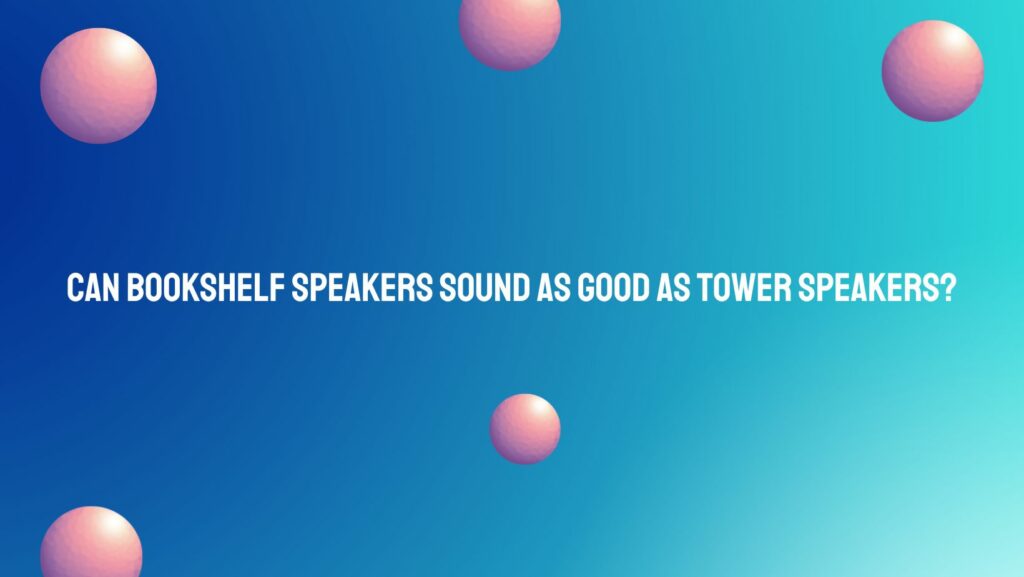In the world of audio enthusiasts, the debate between bookshelf speakers and tower speakers has been a longstanding conversation. Tower speakers are often seen as the pinnacle of audio performance due to their larger size and dedicated design. However, can bookshelf speakers truly stand toe-to-toe with their taller counterparts in terms of sound quality? In this article, we delve into the intricacies of both speaker types to uncover whether bookshelf speakers can indeed sound as good as tower speakers.
Understanding the Design Differences: Tower speakers, also known as floor-standing speakers, are renowned for their larger cabinets, allowing for bigger drivers and more internal volume. This often translates to extended low-frequency response and greater overall power handling. On the other hand, bookshelf speakers, as the name suggests, are more compact and typically have smaller drivers.
Low-Frequency Considerations: One of the primary distinctions between bookshelf and tower speakers lies in their ability to reproduce low frequencies. Tower speakers, with their larger cabinets and drivers, generally have a more extended bass response. However, advancements in technology, such as the inclusion of dedicated subwoofers and advanced driver designs, enable certain bookshelf speakers to deliver surprisingly robust bass for their size.
Midrange and High-Frequency Performance: Bookshelf speakers can excel in midrange and high-frequency reproduction. Their smaller size often allows for better control and precision in these frequency ranges. Additionally, some audiophiles argue that the absence of large cabinets can result in reduced cabinet-induced coloration, contributing to cleaner and more accurate midrange and high-frequency response.
Room Acoustics and Placement: Both bookshelf and tower speakers are influenced by room acoustics and placement. The impact of room reflections and standing waves can affect the perceived sound quality of either speaker type. Proper placement, acoustic treatment, and room calibration are crucial factors that can significantly influence the performance of both bookshelf and tower speakers.
Advancements in Speaker Technology: Recent advancements in speaker technology have blurred the lines between bookshelf and tower speakers. Some bookshelf speakers now incorporate sophisticated driver materials, advanced crossover designs, and innovative cabinet construction techniques. These advancements contribute to improved overall sound quality, challenging the notion that larger speakers inherently sound better.
Listener Preferences and Use Cases: Ultimately, the choice between bookshelf and tower speakers depends on individual preferences and use cases. While tower speakers may be favored for home theaters or larger listening spaces, bookshelf speakers can shine in more intimate settings. Consider the specific requirements of your audio setup, room size, and the genres of music or types of content you enjoy when making a decision.
Conclusion: The age-old question of whether bookshelf speakers can sound as good as tower speakers lacks a one-size-fits-all answer. Both speaker types have their strengths and weaknesses, and advancements in speaker technology continue to narrow the gap between them. Consider your specific audio needs, room characteristics, and personal preferences when making a decision. Regardless of your choice, the market offers a plethora of high-quality options in both bookshelf and tower speakers, each capable of delivering a remarkable audio experience.

